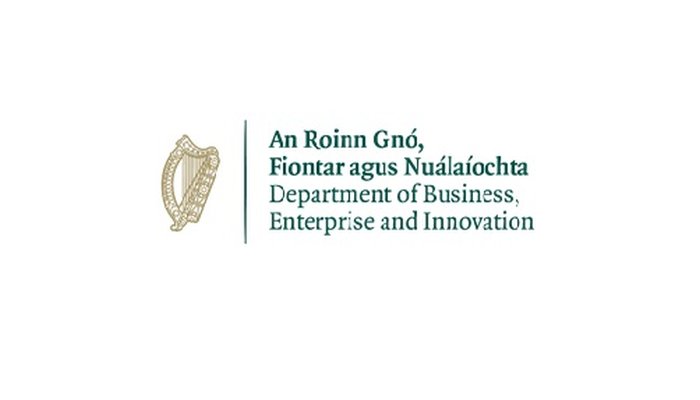
Ministers Humphreys and Flanagan announce change to immigration arrangements for spouses and partners of Critical Skills Employment Permit Holders
Change to give immediate and full access to the Irish Labour Market without the need for an employment permit
Dublin, Ireland, 6th March Heather Humphreys TD, Minister for Business, Enterprise and Innovation, and Charlie Flanagan TD, Minister for Justice and Equality, today (Wednesday, 6th March 2019) announced that the spouses and partners of Critical Skills Employment Permit holders will be able to access the Irish labour market without the need to obtain an employment permit. This change will streamline existing processes and result in a more attractive offering for both investors and international talent.
Ireland is competing with other knowledge economies for talent. For this reason, in tandem with the Government’s work to ensure that the domestic workforce has the appropriate skillsets now and into the future, it continues to drive strategies to attract highly skilled foreign nationals into the State to take up key jobs that companies are finding hard to fill.
Jobs that have been identified as highly-skilled are needed across all sectors, particularly the ICT sector, to ensure that Ireland’s economic growth is secured into the future. To meet this need, the Critical Skills Employment Permit is designed to attract these highly skilled individuals into the State to fill these high-demand vacancies, where the required skills are not readily available in the Irish/EEA labour market.
One of the primary benefits of the Critical Skills Employment permit over others includes the option for the Permit holder to apply for immediate family reunification. Added to this has been the option for the dependent, spouse or partner to apply for a specific employment permit, should they choose to work and if they find a job, however, the existing system has resulted in unnecessary delays.
Minister Humphreys explained:
“Fundamentally, this is about ensuring Ireland’s continued competitiveness as a place in which to live, work and invest.
“While up to now, the spouses or partners of Critical Skills Employment Permit holders have been entitled to broad access to the labour market, almost akin to an Irish citizen, the current process is administratively cumbersome and, in many cases, has acted as a barrier to these people securing work here. This is not what was intended when the policy was developed, and the process put in place.”
She continued: “In order to attract the best and brightest to come to work and live in Ireland as opposed to in a competitor country, we need to offer an attractive range of benefits to both the highly-skilled job applicants and their families. We are talking about a small group of people here – less than 1,000 spouses and partners per year – but this small change will make a big difference in terms of Ireland’s offering to both investors, and international talent.
“Furthermore, the research shows that in general the spouses or partners of the Critical Skills Permit Holders are themselves highly skilled and can make a great contribution to our economy. It also shows that in a high percentage of cases where foreign nationals leave a country earlier than planned, it is because their spouses or partners could not find work.
“In short, this is a good change that makes good business sense.”
Both Ministers accepted that the current process was not streamlined and asked their officials work together to effectively address the issue. The measures being jointly announced today do just that.
Minister Flanagan said:
“While this scheme is primarily driven by the Department of Business, Enterprise and Innovation, it is also a prime example of proactive and positive engagement between two departments. Because of this work, the non-EEA spouses and partners of critical skills employment permit holders will no longer need an employment permit from the Department of Business, Enterprise and Innovation to work in Ireland. On arrival in the State, eligible spouses and de facto partners will be granted an immigration permission with automatic right to work. This will enable critical skills permit holders and their families to quickly become established and assist in their integration in society.”
He added that:
“The new procedures also improve customer service and form part of the overall Customer Service Improvement Plan for the Irish Naturalisation and Immigration Service (INIS) as well as demonstrating excellent cooperation across Departments.”
It is recognised that Ireland has to compete with other countries for economic migrants, particularly at the high-end of the skills continuum, certain skills, such as those required in the high-tech sectors are in demand globally.
Minister Humphreys emphasised: “The Government continues to focus on ensuring that the domestic labour market can cater to the skills needs of businesses now into the future; this is a key part of the new Future Jobs Ireland initiative, which we will launch in the coming days. However, the Employment Permits System remains an important aspect of our business offering, and a good way to supplement our existing skills stock.
“This new procedure is an excellent example of joined-up Government thinking, showing that through the ongoing co-operation and engagement of our two Departments, a solution is now in place which provides a simple and fast process to allow these people access the labour market. It clearly demonstrates our commitment to ensuring that the State’s migration polices are sufficiently agile to respond to the demands of the labour market.”
ENDS
